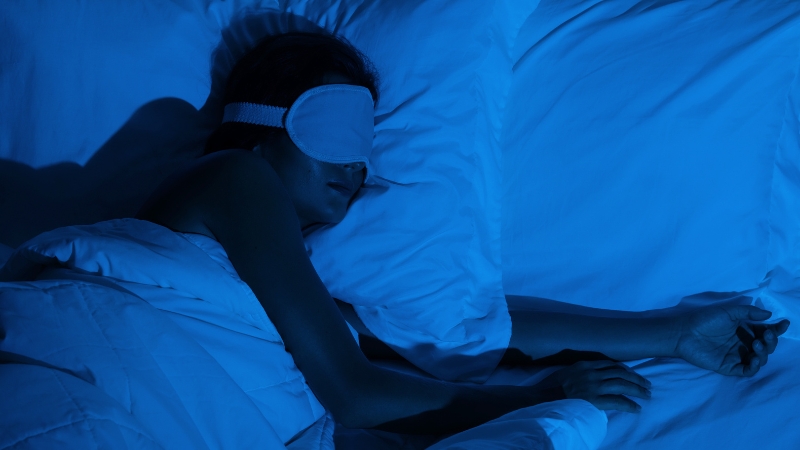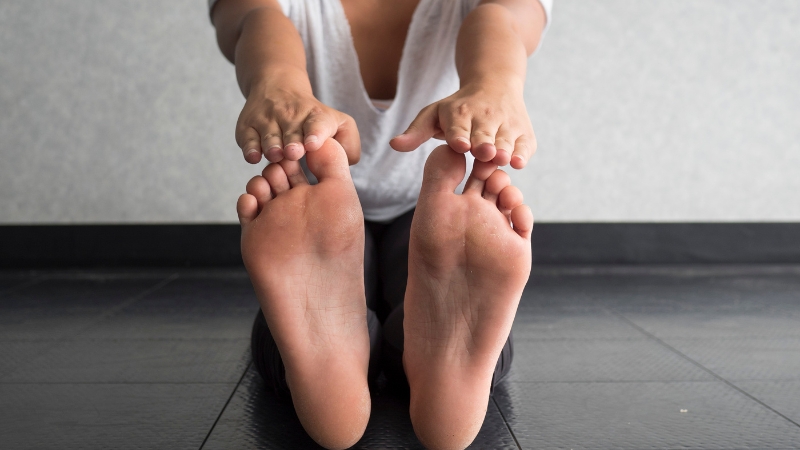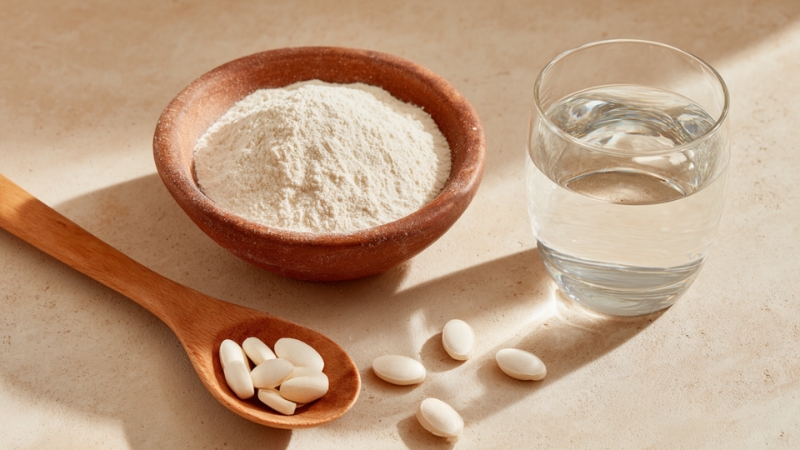
Share Post:
Recovering from a tough workout does not stop when you leave the gym; it continues while you sleep. Nighttime is the most critical recovery window for your muscles.
Growth hormone secretion, cellular repair, and muscle protein synthesis all ramp up during deep sleep. If you want to maximize muscle growth, reduce soreness, and bounce back faster, building the right evening routine is essential.
Table of Contents
Toggle1. Prioritize Deep, High-Quality Sleep (Not Just More Hours)

Sleep is the foundation of recovery. While total sleep time matters, it’s the quality and depth of sleep that dictate how effectively your muscles repair overnight.
During deep sleep (also known as slow-wave sleep), your body releases human growth hormone (HGH), a key anabolic hormone that stimulates tissue growth and repair.
One clinical study published in the Journal of Clinical Endocrinology & Metabolism found that growth hormone secretion peaks shortly after sleep onset, and around 70% of HGH is produced during this phase.
This means that poor sleep hygiene, frequent awakenings, or shallow sleep can significantly hinder your muscle repair, even if you sleep for 8 hours.
Practical tips for enhancing deep sleep:
Here’s a quick reference table for optimizing sleep for muscle repair:
Sleep Factor
Ideal Range/Tip
Total Sleep Duration
7–9 hours
Deep Sleep Time
90–120 minutes
Bedtime Consistency
Same hour every night
Bedroom Temperature
65–68°F (18–20°C)
Light Exposure
Total darkness or eye mask
Insufficient sleep over time not only impairs muscle recovery but can also reduce testosterone levels, elevate cortisol, and increase the risk of injury in training sessions.
2. Add a Slow-Digesting Protein Like Casein Before Bed
While your post-workout shake might focus on whey or plant-based protein, your bedtime protein strategy needs to work differently. Casein protein, found in dairy products, is slow-digesting and delivers a steady supply of amino acids throughout the night, supporting muscle protein synthesis during your most anabolic hours.
A well-known study in Medicine & Science in Sports & Exercise showed that taking 40 grams of casein before sleep resulted in increased muscle protein synthesis overnight and improved morning muscle recovery.
The reason? Casein forms a gel in your stomach, releasing amino acids for up to 7–8 hours, the length of an average sleep cycle.
Top sources of slow-digesting nighttime protein:
Timing matters too; consume your protein about 30–45 minutes before sleep, giving it time to begin digesting. Avoid pairing it with excess sugar or caffeine, as that could affect your sleep quality.
Adding casein consistently before bed has been shown to improve morning muscle retention, reduce soreness, and enhance hypertrophy gains over time in both trained and untrained individuals.
3. Reduce Cortisol With a Relaxation Ritual
Cortisol is the body’s main stress hormone, and while you need it in the morning to get moving, elevated levels at night interfere with sleep and promote muscle breakdown rather than repair.
High cortisol levels can reduce testosterone, inhibit protein synthesis, and even delay glycogen replenishment.
To prevent this, it’s essential to engage in a winding-down routine that encourages parasympathetic nervous system activity, the “rest and digest” mode.
Recommended strategies to lower cortisol:
Some individuals also explore natural botanical supplements and plant-based approaches to enhance relaxation. Many active people have turned to botanicals like White Hulu Kapuas Kratom, a Southeast Asian herb known for its mild soothing properties and ability to support calm muscles post-exercise.
If you’re curious about incorporating botanicals into your wind-down routine, you can click here to explore trusted sources for White Hulu and similar products.
While not a substitute for sleep hygiene or hydration, such natural aids can complement your recovery system when used responsibly and with awareness.
4. Hydrate With Purpose, But Not Right Before Bed

Water does more than quench your thirst; it facilitates nearly every function required for recovery. Muscle cells are 75% water, and adequate hydration improves nutrient delivery, waste removal (like lactic acid), joint lubrication, and electrolyte balance, all of which are crucial while your body rebuilds tissue during rest.
However, the trick is timing. Drinking too much water right before sleep may disrupt your sleep cycle by causing you to wake up and use the bathroom. Instead, focus on smart hydration starting earlier in the evening.
Evening hydration tips for recovery:
A 2021 study from the European Journal of Sport Science concluded that even 1% dehydration can impair strength output and delay post-exercise recovery by 15–20%. That’s not just performance loss, i t’s extended soreness and longer downtime.
Proper hydration also reduces cramping at night, improves sleep quality, and supports muscle glycogen storage (which is 3:1 water to glycogen by volume).
5. Use Mobility Work to Enhance Circulation and Muscle Reset
@_ausmadeasy night time stretch routine to do before bed♬ Fortunate Carriages JAYBeatz – JAYBeatz
Lastly, giving your muscles a gentle reset through nighttime mobility work is a smart way to ease soreness, improve blood flow, and prepare for deeper recovery. Foam rolling, dynamic stretches, or light yoga before bed help activate circulation to deliver oxygen and nutrients to damaged tissue.
This is especially important if you’ve done:
Foam rolling has been shown to reduce delayed onset muscle soreness (DOMS) by up to 30% in clinical trials, especially when paired with proper hydration and sleep.
A short 10-minute mobility session can target tight hips, shoulders, quads, or back, depending on your training split.
Simple routine ideas:
Mobility before sleep doesn’t just aid recovery; it helps clear residual muscle tension that would otherwise make sleep feel restless or shallow. By releasing fascia and improving tissue pliability, you’re actively supporting your next workout before you even wake up.
Final Thought

Recovery does not begin and end in the gym. The hours between dinner and sunrise are some of the most impactful when it comes to muscle repair, strength retention, and inflammation reduction. Yet, most people overlook them.
By prioritizing deep, high-quality sleep, fueling your muscles with slow-digesting protein, calming your nervous system, staying smartly hydrated, and using light mobility work, you give your body exactly what it needs to rebuild stronger overnight.
If you’re consistent with these nighttime habits, you’ll likely see a measurable difference in how your body feels each morning and how fast you progress in your training.
Related Posts:
- Best Post-Workout Recovery Hacks for Faster Muscle Repair
- How Seated Hammer Curls Can Improve Your Arm Strength
- How to Improve Neck Alignment Based on Your Sleep Position
- Can You Improve Your Reaction Time? The Techniques…
- Calf Muscle Strains - Symptoms, Causes, and Recovery…
- How to Use Muscle Rollers for Recovery, Flexibility,…














